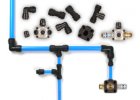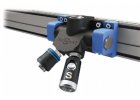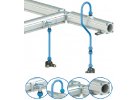158 mm
16 items total

Original parts
702 Kč
–2 %
563 Kč excl. VAT
681 Kč
/ pcs
Manual deburring scraper for air ductwork. Easy and fast installation, low pressure gradient, resistant to mechanical damage, UV radiation and corrosion. Operating temperature...

Original parts
531 Kč excl. VAT
642 Kč
/ pcs
Airnet 158 mm pipe clamp. The entire Airnet system is easy to install. Operating pressure 13 bar, operating temperature -20 to +70 °C. UV, oil and corrosion resistant.

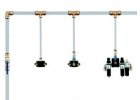
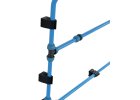
.png)
